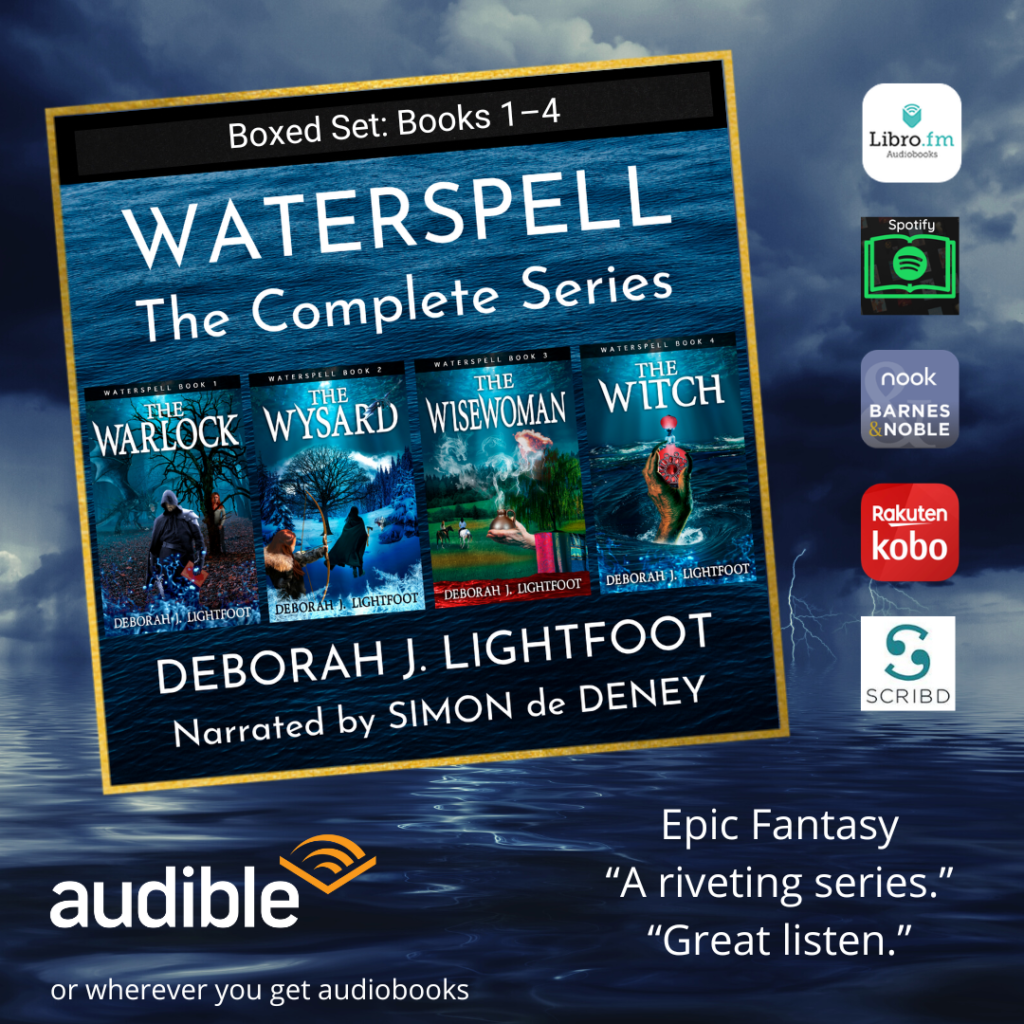Once upon a time I belonged to an in-person writing critique group. The group gave me valuable advice, and I benefited from participation in it. But times changed, and our lives changed, and the group drifted apart, gradually breaking up, or reformulating itself with new members in a different meeting location. I ceased to participate.
These days, I get feedback via email and text messages from my beta readers and reviewers. I also try to engage with other writers on Goodreads and Instagram. Writing is a lonely profession, but it’s not good to work in too much of a vacuum. Even the most introverted among us need to interact with our peers.
 It has been my pleasure recently to talk shop with Martin Dukes, author of the Alex Trueman Chronicles. It turns out that Martin and I have followed similar paths with our respective series: we were both away from our work for 10 years.
It has been my pleasure recently to talk shop with Martin Dukes, author of the Alex Trueman Chronicles. It turns out that Martin and I have followed similar paths with our respective series: we were both away from our work for 10 years.
Coming back to a story after such a long break presents special challenges. I’m sharing our Instagram conversation here, for what it reveals about the issues involved and the concerns we both have as “long-haul authors.”
martin.dukes.wildest.dreams commented: Well done for writing four. How did this work for you? Has there been an obvious evolution in style during the series as you find your way with them? (Just going to Amazon now to get the first one ☺)
booksofwaterspell Thank you! I deeply appreciate your support and your interest. Books 1-3 of Waterspell are really the beginning, middle, and “end” of one continuous story. The new Book 4 is a coda, set five years after the events of the original trilogy. I’m not sure I would recommend that structure: A few readers have been really annoyed by Book 1’s cliffhanger ending. “Golly,” I think when a reader gets angry about it. “I’m giving you Book 1 for free, and several reviews have mentioned that it’s not a standalone, so why the outrage?” I guess I’m so accustomed to fantasy series that go on and on, it never occurred to me that readers would bristle at Book 1 ending on a cliffhanger. As to an evolution in style: I definitely became a more efficient writer. Rereading Books 1-2, I can see that they’re wordy in spots, and draggy in spots. Both would have benefited from a more ruthless paring than I gave them. By Book 3, I was writing more concisely. Partly, I imagine, because the scene had been thoroughly set (and described!) in Bks 1-2. But also because my style did evolve as I continued the saga. Many readers have commented that the series gets better as it goes. Oftentimes it’s the other way around (great first book, disappointing sequels) so I’m happy when readers say that I’ve avoided that trap, at least.
martin.dukes.wildest.dreams I’m surprised that anyone would object to your Book 1 ending on a cliff-hanger, unless it was not already apparent that this was the first in a series. From a writer’s point of view I’m sure such a device is useful in encouraging the reader to move on to Book 2 and a very normal strategy. TBF I could only see one such comment and your other reviews are universally enthusiastic. It’s constantly surprising how some reviewers will settle on one relatively trivial factor and use it as a yardstick by which to condemn the work as a whole! I’m interested to see that you recognise an improvement in your own writing style during the course of the series. I suppose sticking at it and writing them books in quick succession would help with regard to consistency. In my own series there was a gap of about 10 yrs between Books 2 and 3. I have tried very hard to keep things consistent but I’m sure readers will let me know if I haven’t! Did you likewise find that your characters matured and changed over time? (that is, assuming that some of the characters persist from book to book). For my own part, and since a central character is key to the series, I felt that there was a very real maturation as he aged with experience and as I came to know him better over time. Anyway, I wish you all the best with the series, which is evidently highly regarded and well-received.
booksofwaterspell A 10-year gap for you, too, huh. I’m working with the same: My original trilogy 2011-12, now the sequel in 2022. There’s a tension, I think, between achieving consistency but within a framework of growth, for both writer and characters. Like your main character, mine has matured, and her emotionally damaged “significant other” has (mostly) healed. One of my beta readers asked why I didn’t start Book 4 exactly where Book 3 ended (Bk 4 begins five years later). I replied that it wasn’t possible to pick up the story exactly where I’d left it. After my life took a sharp turn during those years, I wasn’t the same person who had written the original trilogy. My characters had also evolved. But I know those people and their story so well, I didn’t have as much trouble writing Book 4 as I thought I might. (Took me eight drafts, but that’s about right.) My beta reader commented: “Rereading the series, I realized your writing really hit its stride with the 3rd book. Not that there was anything wrong with the first two, but the 3rd had an ease about the writing. You’ve maintained that with this book.” I was relieved by her feedback. She confirmed that I’d achieved both some consistency and some growth, which is what a series should have, IMO. Regarding the grousing about Book 1’s cliffhanger: There’s more griping on Goodreads than on Amazon. But I served the story the best I could. If some folks dislike the structure, they have plenty of other books from which to choose!☺I’m looking forward to reading A Moment in Time. It’s up next in my TBR pile.
books of waterspell BTW, I love the cover of A Moment in Time. It’s great.
“It’s constantly surprising how some reviewers will settle on one relatively trivial factor and use it as a yardstick by which to condemn the work as a whole!” —Martin Dukes, author


 The greater part of my attention must now turn to the two boxed sets: Ebook and audiobook. With Book 4 releasing (singly) in February, does it make sense to release the boxed set of ebooks in April? Is that too soon? Will that schedule give me time to promote the set? Research is needed, along with serious thought. The later in the year, the fewer the months during which the boxed set will carry the 2022 copyright date. With so much emphasis on “new releases,” keeping that 2022 date as fresh as possible, for as long as possible, seems to argue for publishing the boxed ebook set ASAP.
The greater part of my attention must now turn to the two boxed sets: Ebook and audiobook. With Book 4 releasing (singly) in February, does it make sense to release the boxed set of ebooks in April? Is that too soon? Will that schedule give me time to promote the set? Research is needed, along with serious thought. The later in the year, the fewer the months during which the boxed set will carry the 2022 copyright date. With so much emphasis on “new releases,” keeping that 2022 date as fresh as possible, for as long as possible, seems to argue for publishing the boxed ebook set ASAP.









